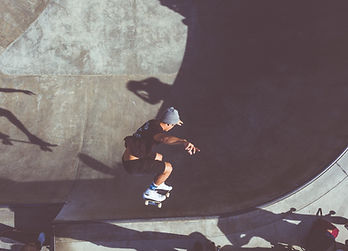How mobile technology could transform voter turnout and trust.

In a year where over half the world's population will have participated in elections, voter engagement—and apathy—has never been more critical. This Web Summit panel takes a hard look at how technology could make democracy more accessible. Journalist and author James Ball moderates a lively discussion with Bradley Tusk, CEO of Tusk Ventures and author of Vote for Your Phone, and Miles Taylor, co-founder of the Washington Office. Together, they unpack the challenges of modern voting systems and the potential of secure mobile voting to empower voters worldwide.
The Lowdown
Mobile voting could bridge the voter turnout gap, especially for younger, tech-savvy generations.
Security concerns are valid, but modern technology like biometrics and blockchain could make mobile voting safer than traditional systems.
Expanding voting accessibility might lead to more moderate political outcomes by increasing participation from less extreme voters.
“The System Is Broken. Turnout Is Abysmal.”
The US political system suffers from low voter turnout outside presidential elections. This creates polarization as elections favor the most passionate—and often extreme—voters. Bradley Tusk argues mobile voting could shift power to a broader middle ground.
Voting via phone is designed for simplicity, eliminating overlooked ballot items and reducing confusion compared to lengthy paper ballots.
Younger generations, like Tusk’s 18-year-old daughter, are disconnected from mail-based systems but could easily adapt to digital options.
"Everyone is making major financial and life decisions digitally—why can’t we vote the same way?" — Bradley Tusk
“Does Digital Voting Solve the Trust Crisis?”
Miles Taylor flipped his initial skepticism, admitting his work in countering election interference led him to embrace secure mobile voting. While paper ballots have a fragmented security advantage, digital systems offer solutions like biometric verification and end-to-end encryption that surpass current safeguards.
Secure mobile voting apps are air-gapped, blockchain-based, and open-source to ensure transparency.
Critics point to the risk of centralized hacking, but proponents argue it's harder to manipulate individual, decentralized devices.
"T-Mobile stops scammers better than polling places prevent voter fraud—this needs to change." — Miles Taylor
“Why Would Politicians Expand Voting If It Threatens Their Power?”
Political inertia is a major barrier. Expanding voter access rarely aligns with the interests of those in power. Tusk likens the fight for mobile voting to historical civil rights movements, where grassroots pressure forced institutional change.
Polling shows bipartisan support for mobile voting, although Republican enthusiasm waned post-2020 due to election fraud rhetoric.
Expect rollout in progressive cities and states first, setting the stage for national adoption.
"The status quo never wants to give people power—but history shows they eventually have to." — Bradley Tusk
“If It’s Easier to Vote, Do We Get Taylor Swift as President?”
Ease of access doesn't necessarily mean voters will choose poorly, but making voting less intimidating could spark higher engagement. Celebrity candidates might benefit, but experts argue moderation and wider representation are likelier outcomes.
Younger voters and tech-friendly policies could reduce extreme partisanship in primary elections.
Previous celebrity leaders, like Arnold Schwarzenegger, have proven capable of governing effectively.
"Taylor Swift for president? Honestly, it’s better than some of what we’ve had." — Bradley Tusk
What's Next
How do you build trust when distrust is everywhere? Miles Taylor emphasizes that government efficiency, driven by technology, is key to restoring public faith. Tusk adds that aligning political incentives with broader voter representation could create a system where politicians govern for the many, not the extremes.
Q&A Highlights:
What’s stopping mobile voting from scaling now?
Political resistance and public perception of security risks.
How secure is secure enough?
Tusk’s app meets or exceeds cybersecurity standards used by tech giants like Google and Amazon.


Comments